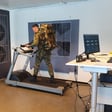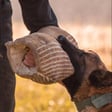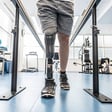
Keith - 911 Dispatch Supervisor
This interview was a personal pleasure of mine as I wanted to highlight some people I've never actually met. 911 dispatchers have been on the other end of my fire radio for the last 26 years and I have the utmost gratitude and admiration for them and their work. If you have the desire to help others and may want to make a career in this vital line of work, this interview will give you a great inside look at the life of 911 and the people therein. A big thanks to Keith as well as dispatchers everywhere for always being there.
Music by: SnoozyBeats - Song Title - "Keep It Calm". Please check out SnoozyBeats on PixaBay for a ton of awesome content! -LINK
If you found the interview helpful and/or entertaining and would like to support the show, you can do so HERE. Thanks!



















